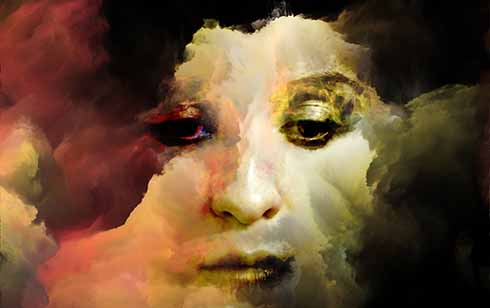 World Mental Health Day will be held on 10 October. The experience of mental illness and our exposure to it tests the value we place on human beings and their lives.
World Mental Health Day will be held on 10 October. The experience of mental illness and our exposure to it tests the value we place on human beings and their lives.
The Royal Commission into Mental Health has heard terrible stories of young people being confined in institutions for the elderly with no youthful companionship nor stimulation. It has also revealed the strain on people who care for the mentally ill who are given impossible responsibilities with no possibility of discharging them. They are inadequately resourced both in staffing and in budgets.
As did previous inquiries, the Commission has revealed the inadequacy of the resources provided for the care for people who suffer from mental illness, and doubt whether anything will change.
Stigma of mental illness
The stories told at the Royal Commission also reveal how destructive is the stigma attached to mental illness. People confronted with mental illness in friends and relatives often fail to comprehend it. They see a person who may have shown great promise in their gifts of intelligence and personality suddenly become withdrawn and unable to concentrate and participate in society, and perhaps seeking relief in addiction.
Those who look on may begin by blaming mentally ill persons for refusing to make an effort to lift themselves out of what afflicts them. They can become resentful, and perhaps secretly fearful that the condition may be contagious.
The person who suffers from mental illness may then withdraw further as their friends and acquaintances avoid them and as their social world shrinks. If they are fortunate some family members and friends will hang in with them despite seeing little evidence that it makes a difference. But often the stigma that attaches to mental illness means that both the ill person and those who love them become isolated. They cannot talk about or find people to listen to their feelings and experience
Value we place on human life
The experience of mental illness and our exposure to it tests the value we place on human beings and their lives. If we value people by their charm, their ability to build easy relationships, by their success in work and making money, then people who are mentally ill may seem to fail on all counts. So they are seen to have no value. If we are to retain hope when we are mentally ill and to stay with people who are ill, we must value them and ourselves highly simply because we are human. They are our brothers and sisters and worthy of respect for their simple humanity.
The keys to proper care for people who are mentally ill lie in our personal attitude to mental illness and to people who suffer from it. We must see them as our brothers and sisters to whom we have a responsibility. That means coming to know people, hanging in with them, helping to educate those who are afraid or contemptuous of them, and feeling for them in the misery and neglect from which they too often suffer.
Lasting changing
When the stories of people who suffer from mental illness and of their treatment receive publicity, public attitudes to them change temporarily. But for change to last something more is required. After past Royal Commissions little changed.
Governments passed some laws and provided some support, but were not willing to make a high enough priority of care for the mentally ill to make long-term investments in coordinated support.
Many of us who work with young people are familiar with this pattern. We experience it in our accompaniment of vulnerable young people in the justice system, many of whom also suffer from mental illness. Inquiries arouse shame at their treatment in detention centres and call for a more humane and effective response. But reforms peter out because they are not adequately resourced.
Enduring commitment
Compassion needs to be joined by enduring commitment.
It would be easy to blame this failure on governments – and we should hold them to account. But they realised that people would only support changes that did not seem to disadvantage themselves. Change demands more than an alteration in the way we imagine mental illness.
It demands a commitment to the common good which makes us ready to sacrifice some of the privileges that we enjoy. The plight of the mentally ill is controlled by our priorities.
For more information, visit the World Mental Health Day website.
Image: depositphotos.com